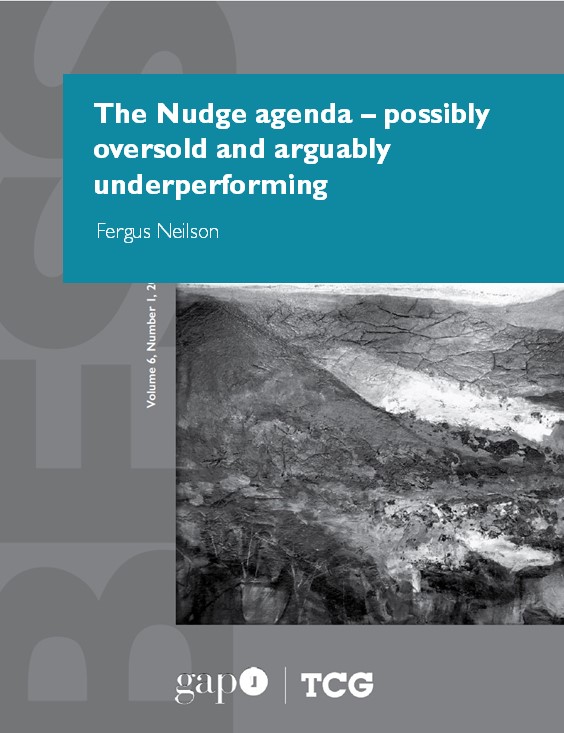The Nudge agenda – possibly oversold and arguably underperforming
DOI:
https://doi.org/10.54337/ojs.bess.v6i1.8716Nyckelord:
Nudge theory, behavioural economics, libertarian paternalismAbstract
Since the publication of Nudge by Richard Thaler and Cass Sunstein in 2008, “nudging” has been widely adopted as a way intended to deploy limited government budgets more effectively, and as a means to change economic, social and political behaviour in ways that neither challenges individual freedoms nor imposes collective costs. However, doubts are emerging, both as to research validity and to operational outcomes. This article provides a brief overview of the ambitions, applications and ambiguities inherent in nudging. It concludes with the suggestion that nudging is no ‘silver bullet', but neither has it totally failed to deliver on its promise. It is just that its promise has been overblown and that the ‘nudge’ can be expected to deliver only as one element in a coordinated series of inter-institutional interventions that include compulsion, facilitation and information, as well as persuasion – the nudge itself.

##submission.downloads##
Publicerad
Nummer
Sektion
Licens
Copyright (c) 2024 Fergus Neilson

Detta verk är licensierat under en Creative Commons Erkännande-IckeKommersiell-IngaBearbetningar 3.0 Internationell licens.
This journal provides immediate open access to its content on the principle that making research freely available to the public supports a greater global exchange of knowledge.
Articles published in BESS follow the license Creative Commons Attribution-NonCommercial-NoDerivs 3.0 Unported (CC BY-NC-ND 3.0)
Authors retain copyright and grant the journal right of first publication with the work simultaneously licensed under a Creative Commons Attribution License: Attribution - NonCommercial - NoDerivs (by-nc-nd).
Further information about Creative Commons




